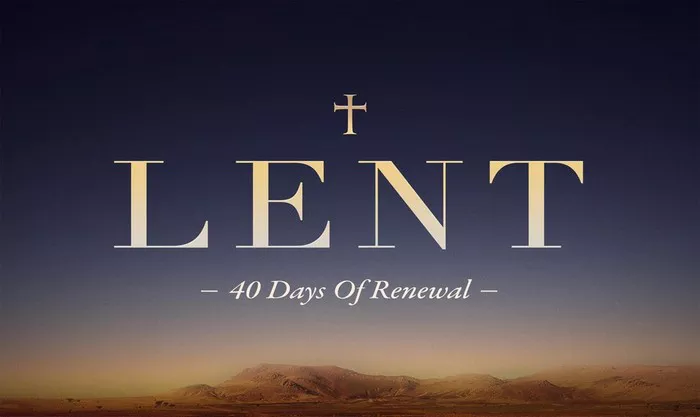Lent, a period of 40 days observed by Christians worldwide, holds profound spiritual significance. It commemorates the 40 days Jesus spent fasting in the wilderness, enduring temptation and preparing for His ministry. This period, from Ash Wednesday to Easter Sunday, is marked by prayer, repentance, and fasting, mirroring Jesus’ own journey. Delving into the events of Jesus’ 40 days in the wilderness provides insight into the significance of Lent and its practices for believers today.
Understanding the Context: The Wilderness Experience
Before delving into Jesus’ specific actions during the 40 days of Lent, it’s crucial to understand the context of His wilderness experience. After His baptism by John the Baptist, Jesus was led by the Spirit into the wilderness to be tempted by the devil (Matthew 4:1-11, Mark 1:12-13, Luke 4:1-13). This period of testing was a pivotal moment before the start of His public ministry.
Fasting and Temptation
The first notable aspect of Jesus’ time in the wilderness is His fasting. He abstained from food for 40 days and nights, highlighting His physical and spiritual discipline. Fasting has long been a spiritual practice observed during Lent, symbolizing self-denial, reliance on God, and spiritual purification.
During His fast, Jesus faced three specific temptations from the devil. These temptations targeted His identity, authority, and trust in God. Each time, Jesus responded with Scripture, demonstrating His unwavering commitment to God’s will and His resistance to the lure of worldly power and prestige.
Prayer and Communion with God
While Scripture doesn’t provide explicit details of Jesus’ prayers during His time in the wilderness, it’s reasonable to assume that prayer played a significant role in His spiritual journey. Communion with God through prayer was central to Jesus’ life and ministry, and it undoubtedly sustained Him during His period of fasting and temptation.
For believers observing Lent, prayer serves as a vital component of their spiritual discipline. It fosters intimacy with God, provides strength in times of trial, and aligns one’s heart with God’s purposes.
Preparation for Ministry
Jesus’ 40 days in the wilderness served as a period of preparation for His ministry. It was a time of refining, testing, and spiritual growth before He embarked on His mission to proclaim the kingdom of God and reconcile humanity to the Father.
Likewise, Lent serves as a season of preparation for Christians. Through prayer, fasting, and repentance, believers prepare their hearts to more fully participate in the death and resurrection of Jesus Christ. It’s a time to realign priorities, shed distractions, and deepen one’s commitment to following Christ.
Reflection and Self-Examination
Jesus’ wilderness experience invites believers to engage in reflection and self-examination during Lent. Just as Jesus confronted temptation and stayed faithful to God, believers are called to examine their own lives, identify areas of spiritual weakness, and recommit themselves to following Christ wholeheartedly.
Lent provides a structured opportunity for introspection, repentance, and renewal. It’s a time to acknowledge sin, seek forgiveness, and strive for greater holiness in one’s thoughts, words, and actions.
Conclusion
The 40 days of Lent hold profound significance for Christians, mirroring Jesus’ own journey of fasting, temptation, and preparation for ministry. Jesus’ time in the wilderness serves as a model for believers seeking to deepen their faith, grow in spiritual discipline, and draw closer to God.
During Lent, believers are invited to emulate Jesus’ example by engaging in prayer, fasting, and self-examination. It’s a season of preparation, reflection, and renewal, leading up to the celebration of Jesus’ victory over sin and death on Easter Sunday.
As Christians embark on their own Lenten journey, may they be inspired by the steadfastness of Jesus in the face of temptation, the depth of His communion with the Father, and the transformative power of His ministry. May Lent be a time of spiritual growth, renewal, and drawing ever closer to the heart of God.
FAQs
1. What are the 3 things we do during Lent?
During Lent, Christians typically engage in three primary practices: fasting, prayer, and almsgiving. Fasting involves abstaining from certain foods or activities as a form of self-discipline and spiritual reflection, symbolizing Jesus Christ’s 40 days of fasting in the wilderness. Prayer during Lent focuses on deepening one’s relationship with God through meditation, repentance, and seeking guidance. Almsgiving emphasizes acts of charity and generosity towards those in need, reflecting Jesus’s teachings on compassion and service to others. These practices aim to foster spiritual growth, self-awareness, and renewal during the Lenten season.
2. Where did Jesus spend the 40 days of Lent?
According to the Gospels, Jesus spent the 40 days of Lent in the wilderness, fasting and praying. This period, known as the “Temptation of Jesus,” is described in detail in the books of Matthew, Mark, and Luke. After his baptism by John the Baptist, Jesus was led by the Holy Spirit into the desert, where he endured temptation by Satan. During this time, Jesus fasted and faced various trials, ultimately triumphing over temptation and reaffirming his commitment to God’s will. The wilderness symbolizes a place of solitude and spiritual testing, highlighting Jesus’s humanity and divine purpose.
3. What does the Bible say about 40 days Lent?
The Bible doesn’t explicitly mention Lent as a 40-day period of fasting and preparation leading up to Easter. However, the concept of a 40-day period holds significance in Scripture. For instance, Moses spent 40 days on Mount Sinai receiving the Ten Commandments (Exodus 34:28), and the Israelites wandered in the desert for 40 years (Deuteronomy 8:2). Similarly, Jesus fasted for 40 days in the wilderness before beginning his public ministry (Matthew 4:1-2). Lent draws inspiration from these biblical narratives, using the period of 40 days as a time for spiritual reflection, repentance, and preparation for the celebration of Christ’s resurrection on Easter Sunday.

